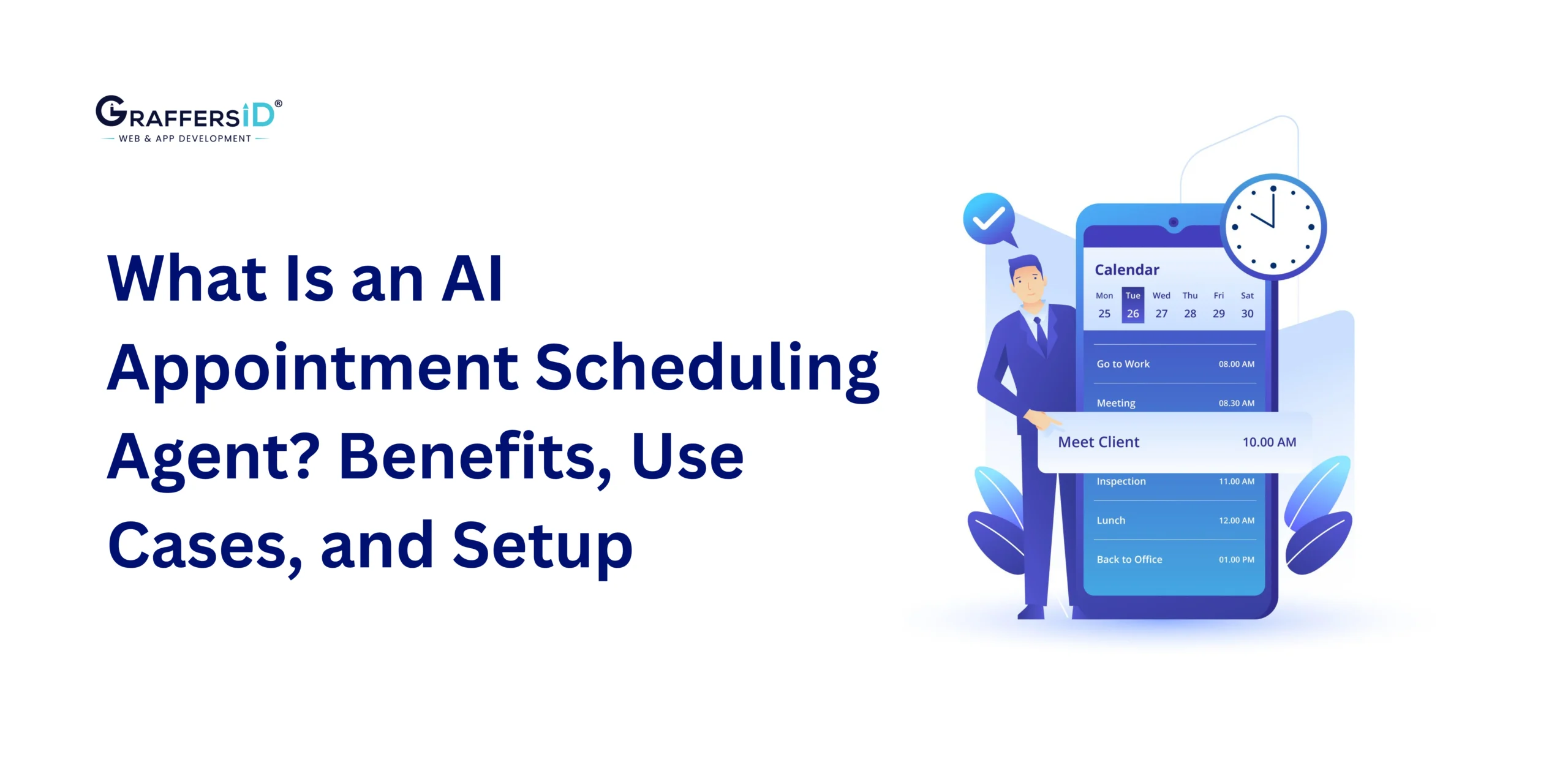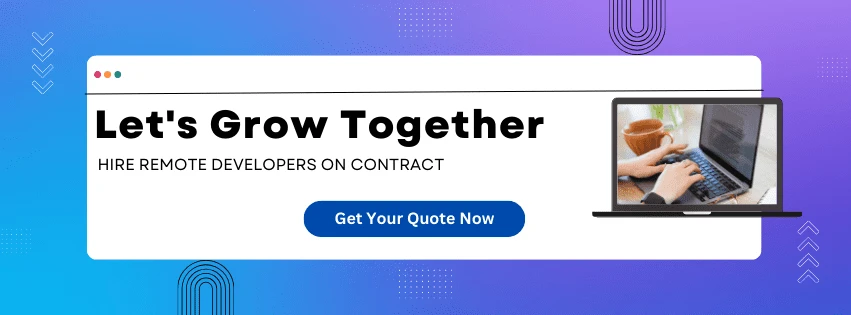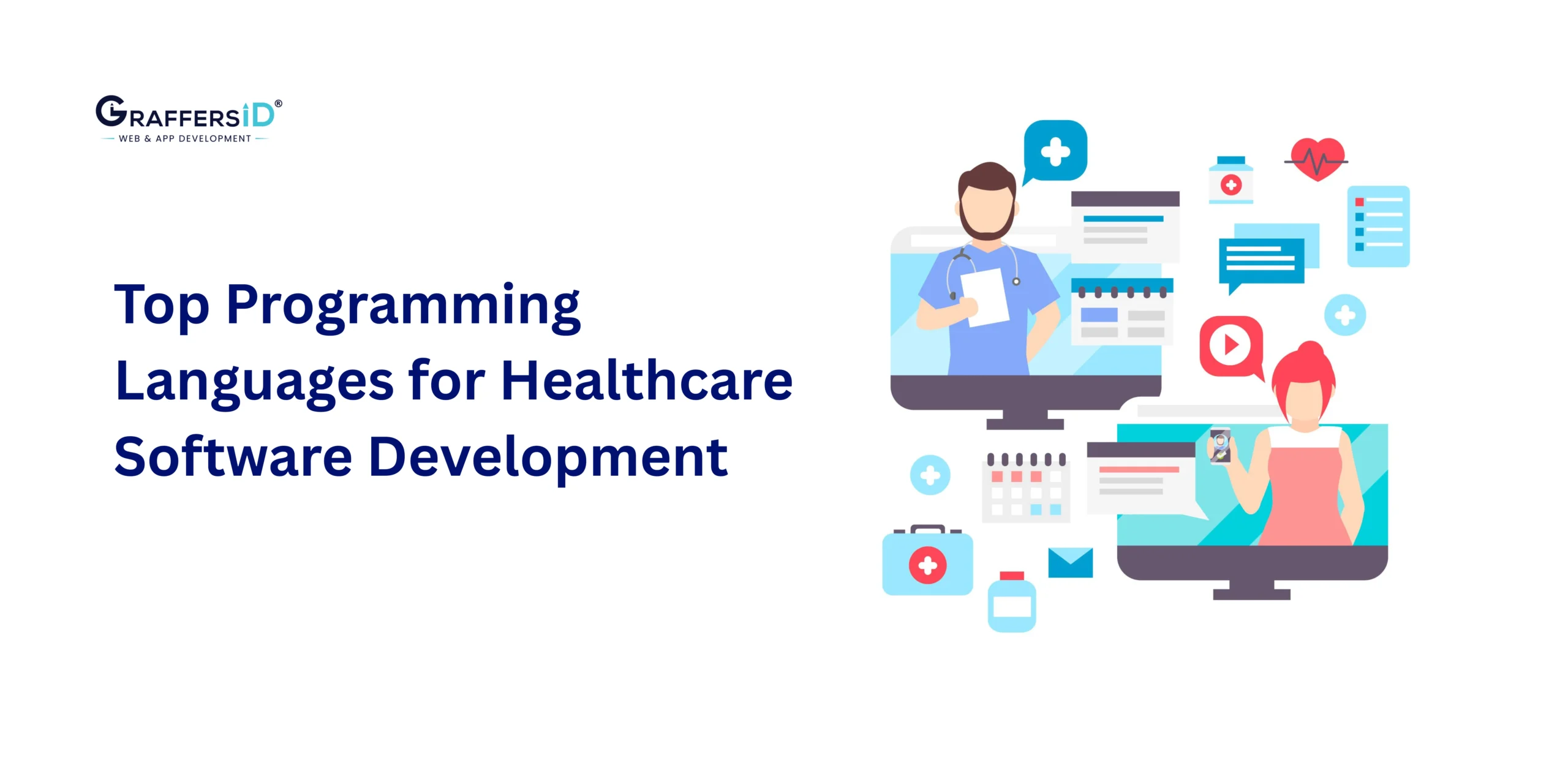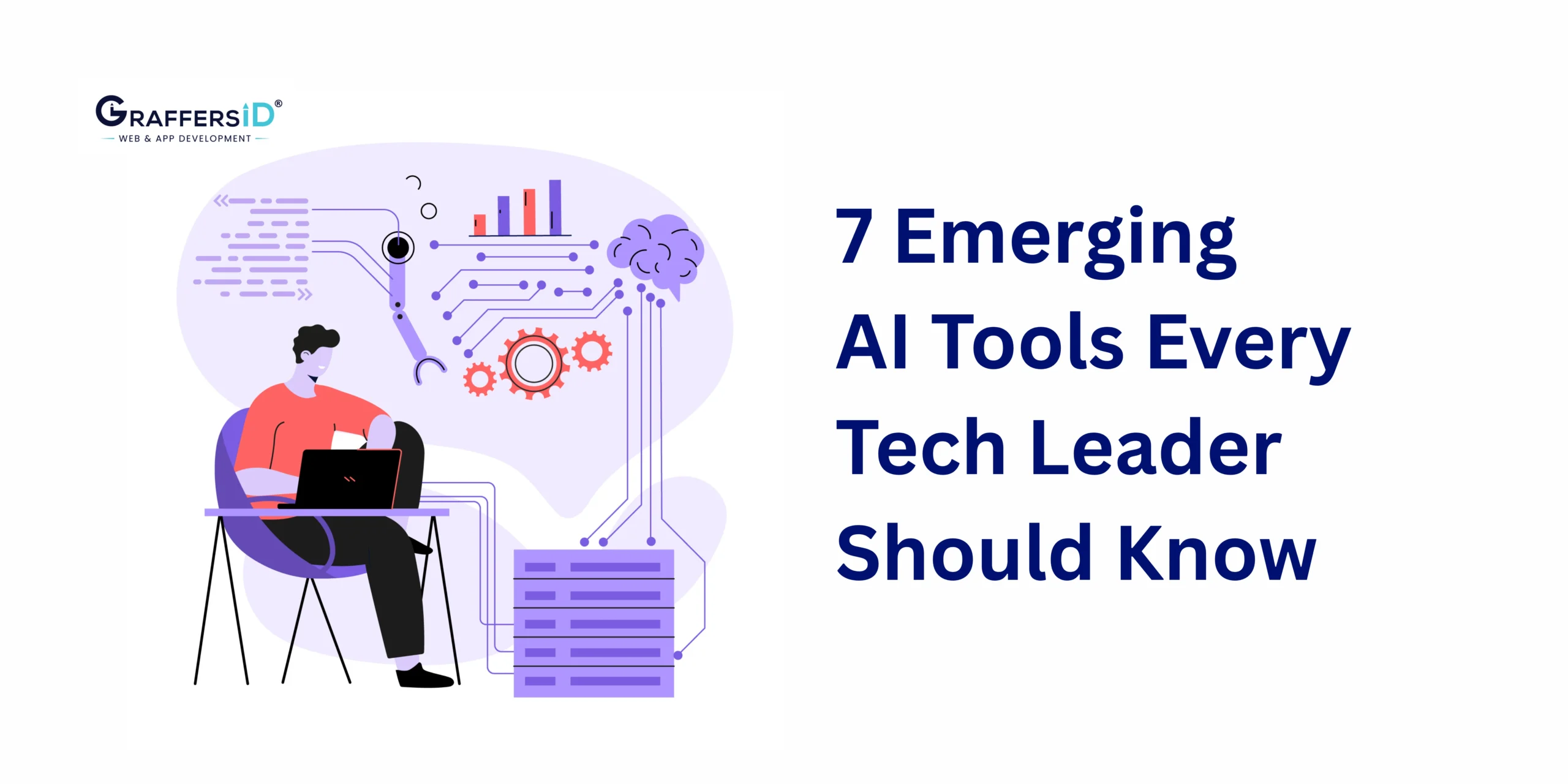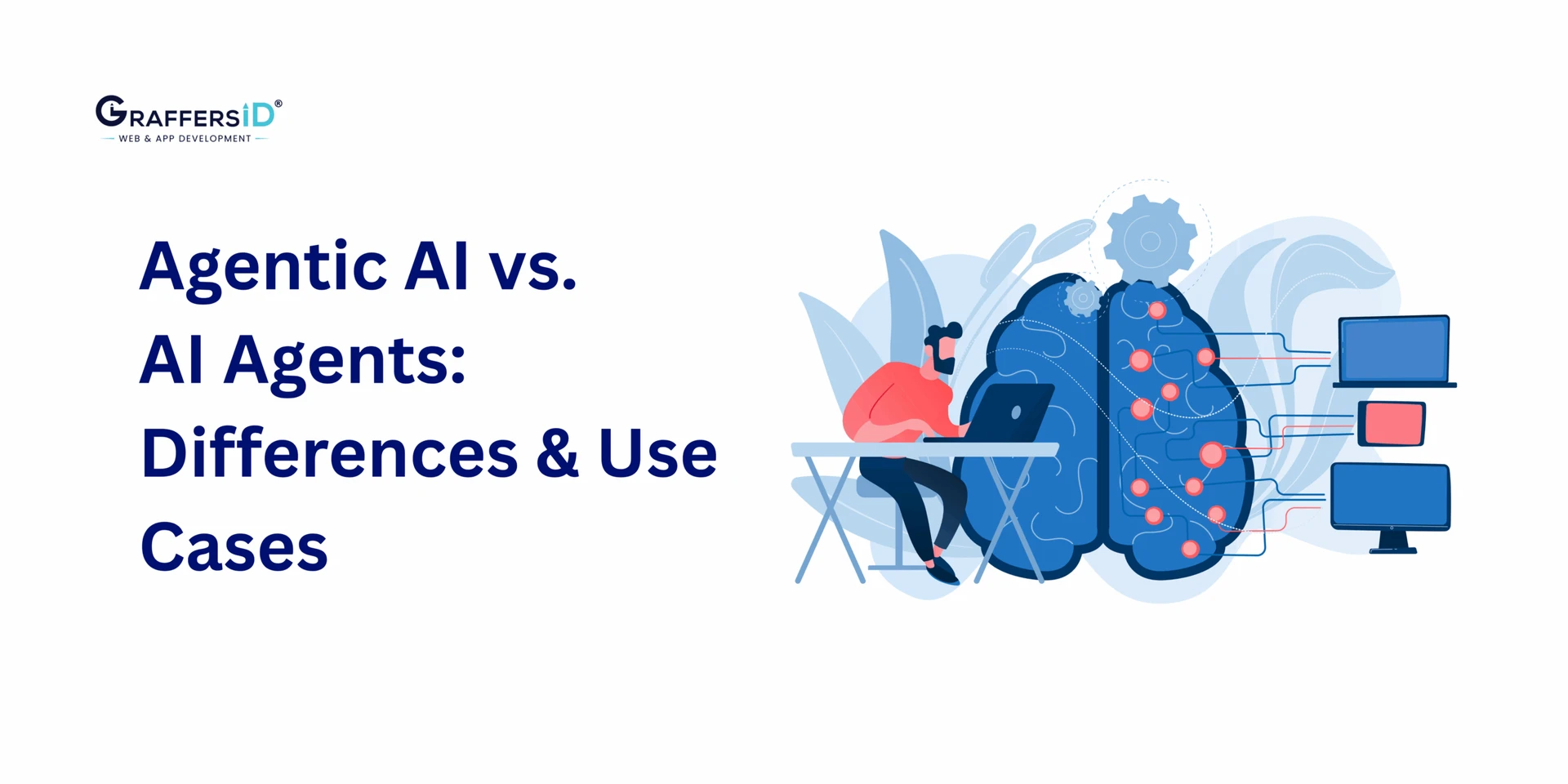In today’s competitive digital economy, time is one of the most valuable resources for companies. Whether you are an IT consultant, insurance agent, HR recruiter, or healthcare professional, handling first calls, gathering data, and scheduling appointments manually takes a lot of time and is prone to mistakes. This is where AI appointment scheduling agents are used: intelligent, voice-based virtual assistants that can interact with users and handle scheduling tasks just like humans do.
These AI agents are completely changing the way businesses manage their initial point of contact due to developments in Voice AI, Large Language Models (LLMs), and smart integrations. In this article, we will talk about what these agents are, how they function, the advantages, fundamental features, and how you can utilize one for your business in 2026.
What Is an AI Appointment Scheduling Agent?
An AI appointment scheduling agent is a conversational AI-powered virtual assistant that streamlines the process of setting up and scheduling consultations, interviews, and appointments. As compared to traditional scheduling tools that depend on user input through static forms or links, AI agents proactively engage in a human-like conversation with users via text or speech to collect data, verify availability, and automatically plan events.
These agents are often customized and fine-tuned to understand the workflows, tone, and goals of a specific business. They are capable of:
- Automatically calling candidates or clients
- Having a conversation to confirm appointments
- Manage follow-ups and reminders
- Gathering structured data and sending it into CRMs or internal systems
AI appointment agents can function as virtual executive assistants, which are consistent, scalable, and available 24/7, instead of being just an added layer of software.
Read More: What Are LLMs? Benefits, Use Cases, & Top Models in 2026
Core Features of a Modern AI Appointment Scheduling Agent (2026)
By 2026, AI agents have developed from basic chatbots to highly responsive, contextual digital employees. Here are some advanced features that set them apart:
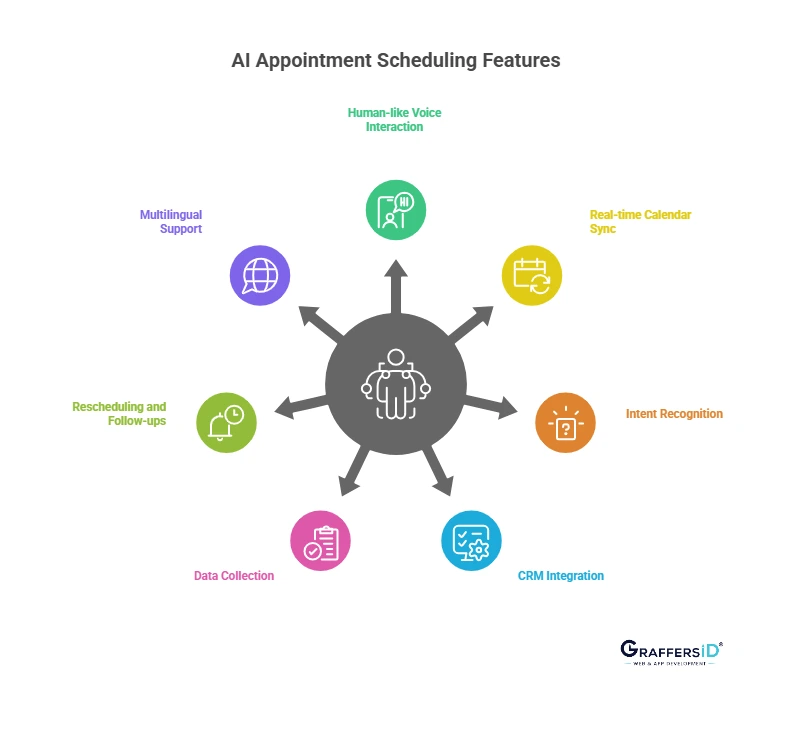
- Human-like Voice Interaction: These agents, enabled by Voice AI technologies such as ElevenLabs and OpenAI’s Whisper, can have natural-sounding phone conversations with clients, including multilingual support and emotional intonation. It’s almost the same as talking to a real person.
- Real-time Calendar Sync: AI agents have real-time access to availability information from various integrated calendars, such as CalDAV-based calendars, Outlook, and Google Calendar. They find available times and book meetings immediately without making duplicate bookings.
- Intent Recognition & Dynamic Flow: The agent can understand user intents in addition to keyword matching through LLMs (such as Claude or GPT-4o). For example, the agent will translate a candidate’s statement, “I’m available some time next Tuesday afternoon,” into exact scheduling logic.
- CRM / ATS / EMR Integration: These agents integrate directly into backend systems, such as Workable or Epic EMR, Salesforce, and Zoho. This allows them to import contact information, update records, and even transfer calls based on user demographics.
- Data Collection & Validation: With the use of conversational validation procedures, AI agents are able to collect and validate important data, like email addresses, phone numbers, availability, medical symptoms, preferred job roles, etc.
- Rescheduling and Follow-ups: In addition to scheduling, agents also send reminders, and the AI can re-engage to reschedule smartly in case someone cancels or misses a call.
- Multilingual Support: Translations integrated within these agents’ models allow them to communicate in multiple regional or international languages, which is important for offering customer support in different geographic locations.
Benefits of Using AI Agents for Appointment Scheduling
There are numerous advantages in the operations, customer experience, and cost control aspects of employing an AI scheduling assistant. Here are some of them:
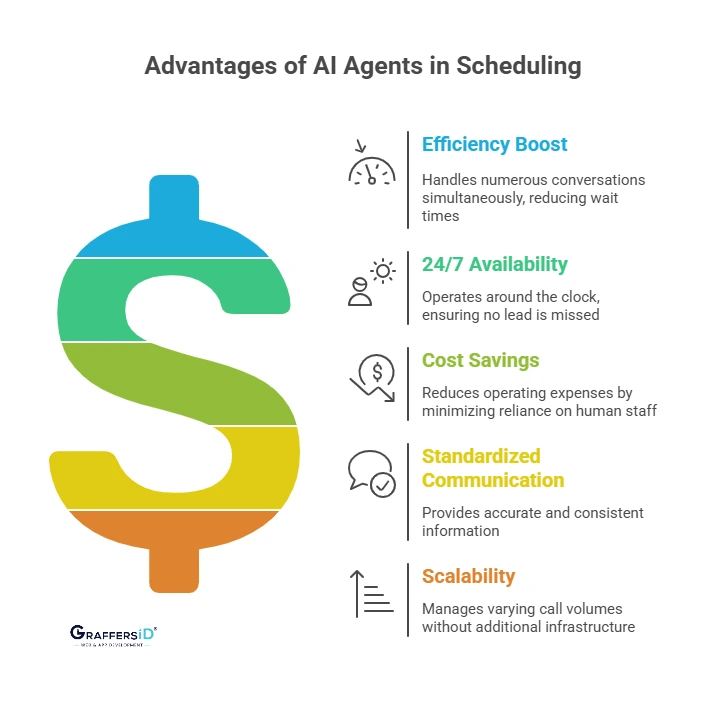
- Efficiency Boost: A single AI agent can handle hundreds or thousands of conversations simultaneously. This not only reduces call wait times but also ensures real-time response, even during peak hours.
- 24/7 Availability: AI agents work around the clock, unlike human employees who are only available during business hours or on weekends. Whether a candidate schedules an interview across time zones or a patient contacts them late at night, they make sure no lead is overlooked.
- Cost Savings: Businesses can significantly reduce operating expenses by lowering their reliance on BPO contact centers or human schedulers. Instead of paying for full-time staff, you pay for usage or performance.
- Standardized & Accurate Communication: AI agents never get tired or distracted. The information shared is always accurate, the tone is consistent, and the script is customized to business needs.
- Scalable Without Overhead: The AI agent can handle ten or ten thousand calls a day without the need for additional infrastructure or employee training.
Use Cases of AI Appointment Scheduling Agents Across Various Industries (2026)
There is no industry-specific application of AI scheduling agents. They can be adjusted to various verticals due to their contextual intelligence and adaptability.
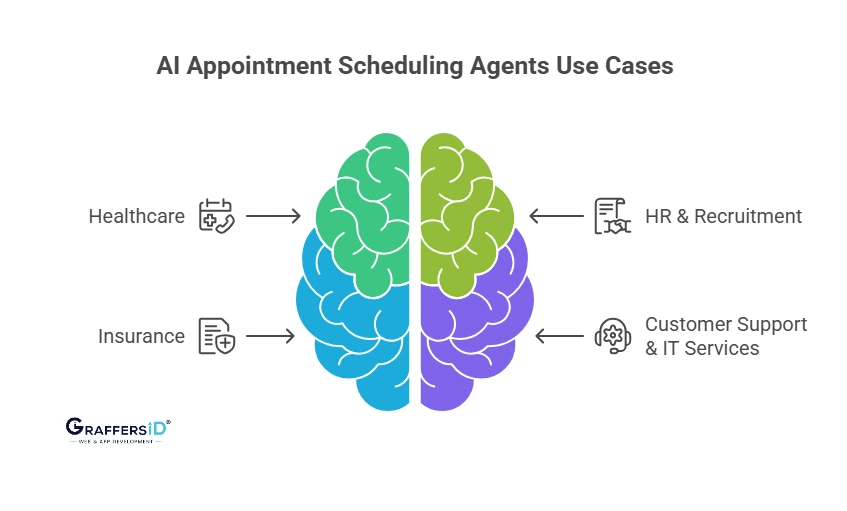
1. Healthcare
- Patient Appointment Booking: Agents handle inbound and outbound calls to schedule doctor visits, diagnostics, and follow-up care.
- EMR Integration: They can update or fetch patient data, symptoms, or medical history for context.
- Reduce No-Shows: Automated reminders and confirmations ensure that appointments are not missed.
- Multi-Language Support: Perfect for multilingual regions or rural areas with language diversity.
2. HR & Recruitment
- Candidate Pre-Screening & Interview Scheduling: The AI agent can call candidates to schedule interviews after receiving applications, based on the availability of the hiring manager.
- ATS Syncing: Data such as availability, job interest, and desired salary is entered into Applicant Tracking Systems.
- Automated Follow-ups: Rescheduling missed interviews or reminding candidates becomes seamless.
- Boosts Employer Branding: Candidates appreciate fast and responsive scheduling without back-and-forth.
3. Insurance
- Policy Renewal & Service Calls: For the insurance industry, automatically schedule consultations or renewal discussions with clients nearing expiration dates.
- Claims Coordination: Post-claim, the AI can initiate follow-ups or appointments with adjusters.
- Lead Qualification: First encounter with a new client? Allow the AI to compile information and plan the appropriate human call.
- Compliance-Driven Messaging: Enforce legal scripts and disclosures during calls without human error.
4. Customer Support & IT Services
- Demo or Onboarding Scheduling: For SaaS or IT firms, AI can automate demo bookings or onboarding call appointments.
- Global Support: Provide time zone-aware scheduling for international clients.
- Intake & Triage: Recognize the type of problem and direct the client to the appropriate department at the appropriate time.
- Reduce Agent Load: By filtering and handling routine appointment calls, support agents can focus on actual problem-solving.
AI vs. Traditional Scheduling Tools
Let’s examine the differences between AI agents and conventional scheduling software to determine their worth:
| Feature | Traditional Scheduling Tools | AI Appointment Scheduling Agent |
| User Interface | Static forms or calendar widgets | Human-like voice/text conversations |
| Interaction Mode | Manual, user-driven | Proactive, AI-initiated |
| Customization | Limited branding & logic | Deep company-specific logic |
| Language Support | English or a few others | Multilingual & local dialect support |
| Follow-ups | Manual or limited triggers | Dynamic, smart follow-up flows |
| CRM/API Integration | Basic | Deep API/CRM/EMR/ATS integrations |
| Cost Efficiency | Pay per seat | Pay per interaction or performance |
| Scalability | Manual scaling via staff | Instant scalability via cloud AI |
How to Set Up an AI Appointment Scheduling Agent?
Implementing an AI scheduling agent is easier than it used to be, thanks to no-code and API-based tools. Here’s a step-by-step technical breakdown:
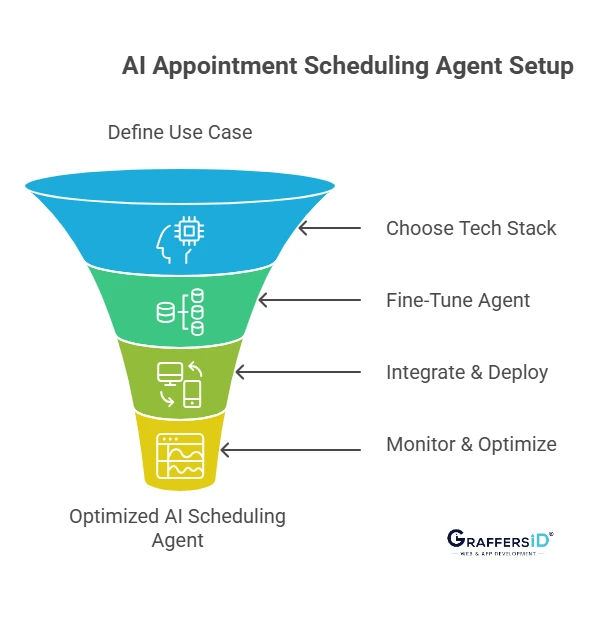
Step 1: Define Your Use Case
Decide the specific function:
- Is it patient scheduling?
- Is it an HR interview setup?
- Is it IT client demo coordination?
Clearly map out the user journey, edge cases, and data needed from the user.
Step 2: Choose the Right Tech Stack
Core Technologies Involved:
- LLM Model: OpenAI GPT-4o, LLaMA 3, and Claude 3 for natural conversation.
- Voice AI: ElevenLabs, Google Speech-to-Text, Whisper.
- Backend Stack: Node.js or Python with REST/GraphQL APIs.
- Integrations: Google Calendar, Zoho CRM, Salesforce, Workable, Epic, etc.
- Security: OAuth2, Role-based Access Control, encryption at rest and in transit.
Optional: Use no-code platforms like Voiceflow, Kore.ai, or Teneo.ai for rapid prototyping.
Step 3: Fine-Tune & Train the Agent
- Upload your company’s vocabulary and scenarios.
- Use sample dialogues to train it (interview calls, patient inquiries, etc.)
- For uncertain inputs, set up fallback logic, such as escalating to a human agent.
Step 4: Integrate & Deploy
- Hook the AI agent into:
- Phone systems (VoIP, Twilio, Exotel)
- Chat (WhatsApp, website)
- Internal systems (CRM, HRMS, EMR)
- Conduct pilot testing with real users to refine the flow.
- Use analytics dashboards to launch and track (call success rate, fallback rate, and user sentiment).
Step 5: Monitor and Optimize
- Continuously gather interaction data.
- Identify drop-off points and refine responses.
- A/B test tone, flow logic, and escalation rules.
- Keep security and compliance logs updated.
Conclusion
AI agents that schedule appointments are more than just another automation tool; they are intelligent agents that can enhance accuracy, save hours of human effort, and offer exceptional user experiences. These agents offer a significant advantage in industries where resources are limited and missed appointments can be costly.
This is the best time to incorporate an AI scheduling assistant into your workflow, allowing your human resources to focus on higher-value tasks, as technologies such as voice AI, LLMs, and smooth API integrations mature quickly in 2026.
Want to build a human-like AI appointment scheduling agent tailored for your business? Talk to GraffersID’s AI experts today.
